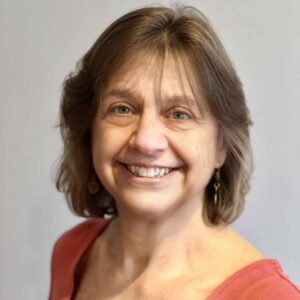Programs to help students with disabilities transition to adulthood
When your student with a disability nears the end of high school and is getting ready to transition into their adult life, it can be unsettling. You may not know what is next for them. How can you help them to continue learning, prepare for employment, improve social skills, and most important: find community?
The good news is that there are many programs to help young adults with disabilities transition to adulthood and prepare for the path that’s best for them. Here are some types of programs to look at, and some examples in Louisiana.
Community College Programs for Students with Disabilities
There are a growing number of programs that give students with intellectual disabilities the support needed to take college classes, increase their independence, prepare for employment, and build social skills.
Some of these are designated as CTP or Comprehensive Transition and Post-Secondary Programs. They offer extra advising, some specialized classes, social skills training and vocational training. They also help students find jobs and internships that fit with their skills and interests.
One example is the Program for Successful Employment (PSE) at Baton Rouge Community College (BRCC).
Click to Read Transcript
Families & Stories: How Has a College Program for Students with Disabilities Helped Your Son Make the Transition to Adulthood? with Johnny & Jonathan
[Johnny] Of course, PSE has been huge for us. As I always share with people, I’m not only the director but I’m also a parent, so I can relate.
[Interviewer] And so PSE, can you say what that is?
[Johnny] Yeah, PSE is the Program for Successful Employment here at Baton Rouge Community College. This program, PSE program, helped him gain friendships that he didn’t have before.
[Interviewer] Yeah, yeah.
[Johnny] He still goes out with the guys. They do Topgolf, they go to movies. He’s going to a basketball game this weekend. They went to the fair Saturday or Sunday. And so it’s helped him gain a lot of friendships that he just didn’t have in high school. So he’s around, you know, other young adults like himself.
[Interviewer] Right.
[Johnny] And so he’s accepted for his differences. And it’s been a great aspect and one that I share with the parents. Again, I let them know that I’m not just the director, but I’m a parent as well, so I know the things that you’re going through and the apprehensions that you may have. But I think all those type of things did help kind of push him along and we’re always, push, pull, push, you can do that yourself.
[Interviewer] Yeah.
[Johnny] You know, we don’t need to do that for you, you know, obviously within limits, but we’ve always pushed him ever since he was much younger and we knew that there were some challenges for him.
You can learn more about supporting young people with disabilities as they transition to adulthood at: Our Transition to Adulthood Hub for Youth with Disabilities
Social Groups for Youth with Disabilities
Socializing is important for young adults, but can be hard for those with intellectual disabilities, those on the autism spectrum, and others. Many high school or college social activities are not very inclusive and may be intimidating for kids who don’t socialize in typical ways.
There are programs that are designed to be inclusive or are specifically for teens with developmental disabilities. One example is the Baton Rouge Young Life Capernaum Program. They run activities, camps and trips that allow young adults with disabilities to connect with others, build social skills and self esteem, and be part of a group.
Click to Read Transcript
Families & Stories: How Have Social Programs for People with Disabilities Helped Your Family Find Community? with Johnny & Jonathan
[Johnny] Young Life is an international organization for, and I may forget the first age, it’s either 13, 14 up to 22. And so it’s an opportunity for young people and their parents, if they choose to do so, to meet. We meet on Tuesdays, pretty much every Tuesday, and they do something … get together, maybe pizza, maybe hot dogs. It is faith-based, so a lot of times it’s a very small, little short Bible study. But they mainly have fun and do crazy things. We have a Thanksgiving party coming up where we will join with the group that I help co-lead, which is 23 and older. So like our group, we went bowling. We went to the main event where they bring in all kind of pool tables and video games and that kind of thing. So we got to know a lot of the parents there. He got to know a lot of the young people and a lot of the young people from…or the guys that he went to school with here, also were part of that.
[Interviewer] Oh, that’s nice.
[Johnny] And so it was, it definitely forms a great sense of community, and I think being part of a social group where parents can talk, like when we went to the Social Security thing, we ask parents, How did you do this? When did you do that? Who did you talk to? So it gives them an opportunity to … for us to not only bond with parents but also for him to bond with others as well, and, you know, have friends and going out and that kind of thing, just like anybody else.
[Woman] That’s great.
[Johnny] He doesn’t drive, but we take him and parents take… and we meet. Sometimes we, you know, they are off doing their thing and we’re off somewhere else, you know, in the same facility, and you know, we let them do their thing and we don’t intrude and that kind of thing. But Young Life has been really great. We’ve been members of that two or three years now, I guess, maybe more. But it’s been very instrumental in his social skills. One summer he went away to camp for a week, no cell phones, no nothing, and he not only went with people from Young Life but other parts of the city. And then other people, young people, that had no disabilities who wanted to go for that part of it, being an inclusionary-type camp. And that could be some football players from one of the high schools. In fact, some of them had come over several times and took them all out for hamburgers and things like that, and so he had that opportunity as well.
[Interviewer] That’s great, no it sounds awesome.
To find more resources and support for families caring for children with disabilities, visit: exceptionallives.org
Transition Programs
While students with disabilities should have a transition plan in place in their school, there are also outside programs that provide transition services. They often serve students from age 16 until after they turn 22 and age out of special education. Transition programs offer training to help young adults prepare for their next step after high school, which may include employment, further education, or independent or supported living.
Programs may offer job readiness training, study skills or social groups, internships and career exploration, or training in everything from daily living tasks to money management. Many have a focus on pre-employment, but most offer services to help with a broader range of living skills.
Here are a few organizations that have offices across the state and offer transition programs and support:
Vocational Programs
Vocational programs are similar to transition programs, but are focused on preparing for employment and finding jobs. They are sometimes called Vocational Rehabilitation programs, and many can serve adults of all ages. Some prepare young adults for specific jobs, but most help more generally with career exploration, work-based learning opportunities or internships, and training in job readiness and self advocacy.
Pre-ETS, or Pre-Employment Transition Services, are offered in high school to students with disabilities, and cover the same types of skills as vocational programs.
The state-run vocational program is called LRS: Louisiana Rehabilitation Services. High school students can register as early as age 16 and get services while they finish school. They can also get services later in life.
There are other independent vocational programs and many of them are offered by the same organizations listed above.
Find programs and learn more
Exceptional Lives’ Resource Directory lists over 50 types of disability-related services in English and Spanish.
Louisiana Resource Directory (en español)
Massachusetts Resource Directory (en español)
Here are some sections to look at for services to help young adults transition to adulthood:
-
Education & Employment
-
Adult Programs & Services
-
Social & Recreational Activities
Find a Parent Center in any state to find programs and support.
Also see our resources for helping your teen prepare for transition to adulthood.




